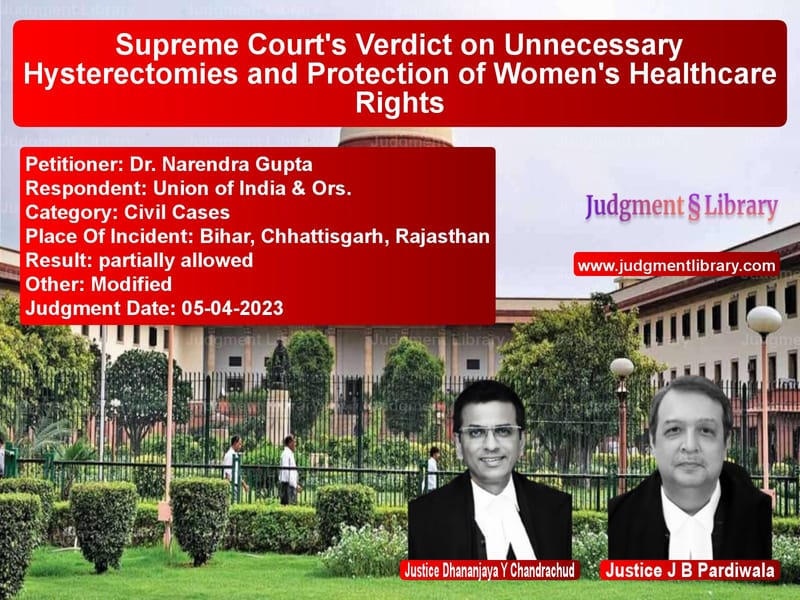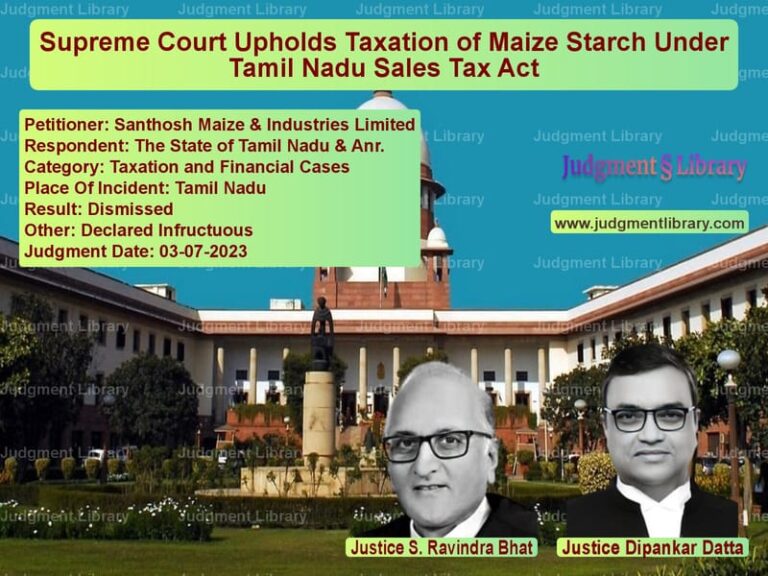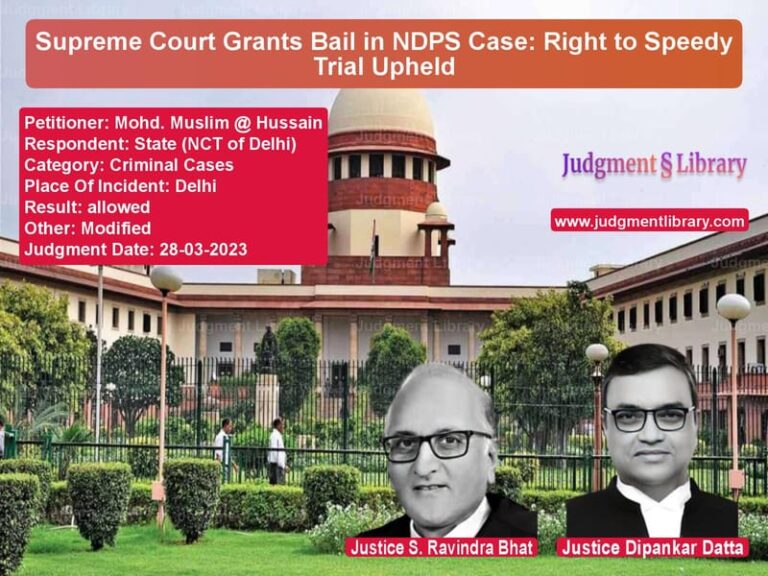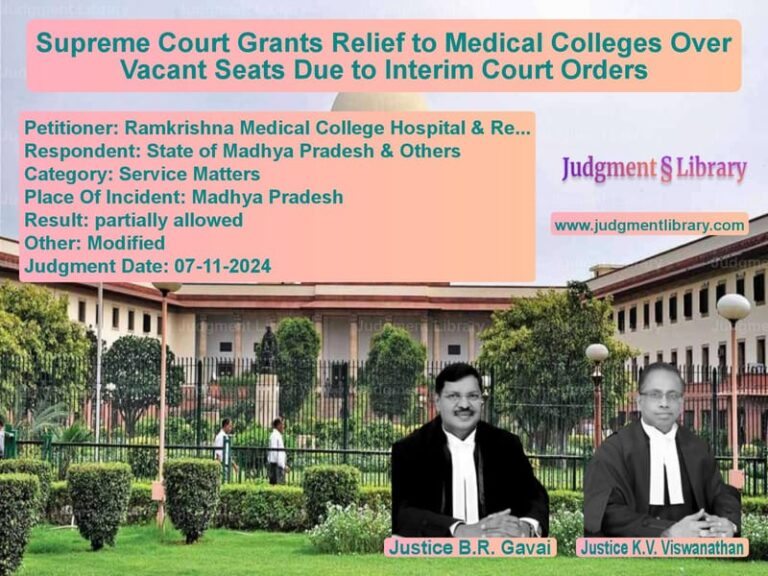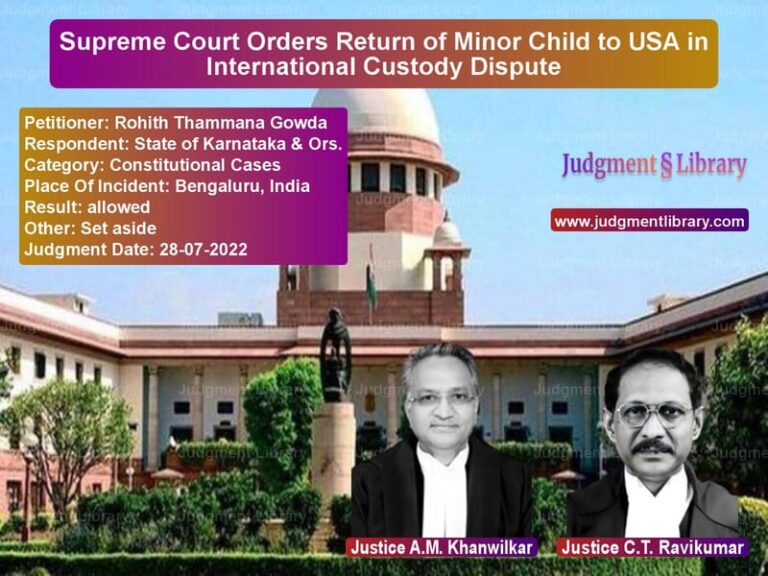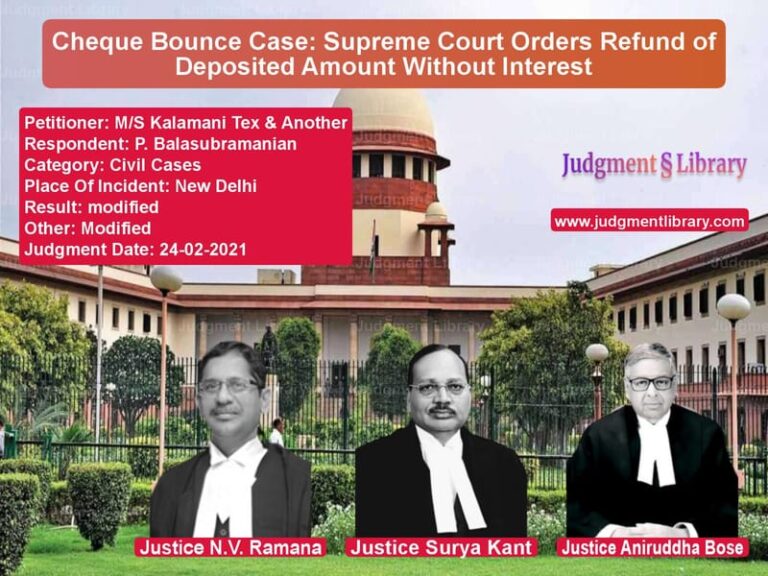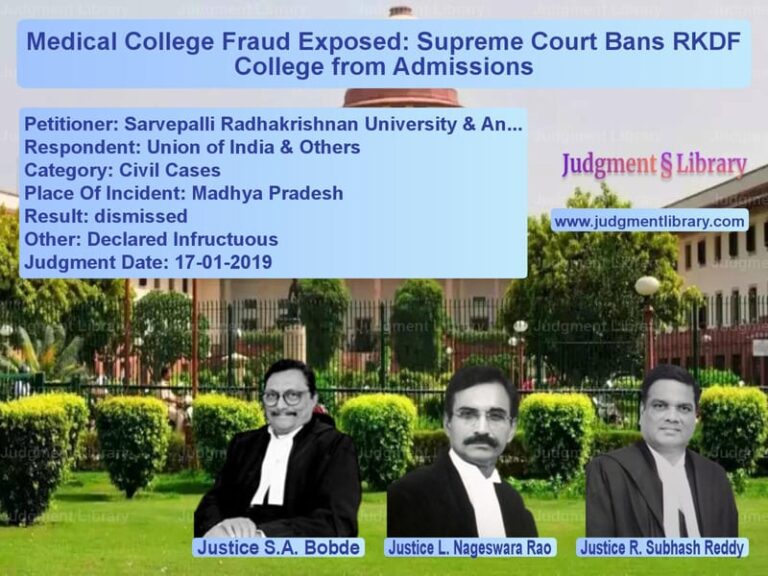Supreme Court’s Verdict on Unnecessary Hysterectomies and Protection of Women’s Healthcare Rights
The Supreme Court of India, in a landmark judgment, addressed the serious issue of unnecessary hysterectomies being conducted on women, especially from economically weaker sections under government healthcare schemes. The case, filed as a Public Interest Litigation (PIL) by Dr. Narendra Gupta, highlighted medical malpractice where private hospitals performed unwarranted hysterectomies under the Rashtriya Swasthya Bima Yojana (RSBY) and other health insurance programs. The judgment reinforced the right to health under Article 21 of the Constitution and directed strict regulatory measures against such unethical practices.
Background of the Case
The PIL was filed after reports emerged that thousands of women, particularly in Bihar, Chhattisgarh, and Rajasthan, were being subjected to unwarranted hysterectomies—surgical removal of the uterus—by private healthcare providers. Many of these women were below 40 years of age and were misled into undergoing the procedure for minor gynecological issues such as menstrual pain or fibroids, which could have been treated with non-invasive methods.
The petitioner contended that this rampant medical malpractice was motivated by financial incentives, as hospitals and doctors benefited from insurance claims under government-sponsored health schemes.
The National Family Health Survey (NFHS-5) data revealed alarming figures:
- Women in rural areas were three times more likely to undergo hysterectomy than urban women.
- Over 70% of these procedures were conducted in private hospitals.
- Many victims reported post-surgical complications, including hormonal imbalance, osteoporosis, and mental health issues.
The PIL demanded a comprehensive investigation, strict regulations on hysterectomy procedures, and compensation for affected women.
Legal Issues Examined
1. Does the performance of unnecessary hysterectomies violate Article 21 (Right to Life and Health)?
The petitioner argued that coercing women into an irreversible surgical procedure without medical justification was a blatant violation of Article 21. The state has a duty to ensure that citizens receive proper healthcare, free from fraudulent practices.
2. Should private hospitals be held accountable under the Consumer Protection Act, 1986?
The court examined whether private hospitals engaged in this malpractice could be held accountable for deficiency in service under the Consumer Protection Act. The case also raised concerns about medical negligence and breach of trust.
3. Can the state be held liable for failing to regulate private healthcare providers?
The court considered whether the government had failed in its duty to regulate private hospitals under the Clinical Establishments (Registration and Regulation) Act, 2010. The petitioner argued that ineffective oversight enabled such unethical practices to continue unchecked.
Arguments Presented
Petitioner’s (Dr. Narendra Gupta) Arguments
- Thousands of women, particularly from Scheduled Castes, Scheduled Tribes, and Other Backward Communities, were coerced into undergoing hysterectomies.
- Private hospitals performed these surgeries for financial gain, exploiting government insurance schemes.
- Women were not provided informed consent, nor were they told about alternative treatments.
- The government’s failure to regulate private hospitals violated the fundamental right to health.
Respondents’ (Union of India & States) Arguments
- The government had taken action, including blacklisting hospitals engaged in fraudulent practices.
- Guidelines had been issued to prevent unnecessary hysterectomies, including mandatory approval processes.
- The state had initiated criminal proceedings against some healthcare providers involved in these cases.
- The issue was not systemic but limited to a few cases of medical malpractice.
Supreme Court’s Observations
The Supreme Court, led by Justices Dhananjaya Y Chandrachud and J B Pardiwala, made the following critical observations:
- The right to health is an intrinsic part of the right to life under Article 21.
- The large-scale performance of unnecessary hysterectomies was a systemic failure that required urgent intervention.
- The state has a duty to regulate private healthcare providers to prevent medical exploitation.
- Victims of unethical medical practices must be provided compensation and rehabilitation.
The court stated:
“Medical procedures, especially irreversible surgeries, must be conducted with the utmost caution. Any deviation from ethical standards and informed consent amounts to a violation of fundamental rights.”
Supreme Court’s Directions
The Supreme Court issued the following directives:
- Mandatory medical audits: States must conduct annual medical audits to prevent unnecessary surgeries.
- Formation of independent regulatory bodies: Independent committees must oversee hysterectomy cases in private hospitals.
- Compensation for victims: Women who were coerced into unnecessary hysterectomies must receive compensation.
- Stricter enforcement: Hospitals found guilty of medical fraud should face criminal prosecution.
- Informed consent procedures: Healthcare providers must ensure women are fully informed before any surgical procedure.
Impact of the Judgment
The ruling has far-reaching implications for healthcare regulation and women’s rights in India:
- Protection of women’s reproductive rights: The ruling reinforces that women should not be subjected to unnecessary surgeries.
- Greater accountability for private hospitals: Hospitals must follow ethical medical practices or face legal consequences.
- Reforms in government health schemes: The judgment calls for stricter oversight of insurance-based health schemes.
- Awareness and education: The ruling emphasizes the need for educating women about their healthcare rights.
Conclusion
The Supreme Court’s decision in National Insurance Co. Ltd. vs. Harsolia Motors & Others is a landmark ruling that upholds the fundamental right to health and protects women from exploitative medical practices. By enforcing strict guidelines and ensuring accountability, the judgment sets a powerful precedent in safeguarding patient rights.
This ruling serves as a reminder that medical ethics and patient welfare must always take precedence over profit motives. The government, private healthcare providers, and civil society must work together to implement these guidelines and prevent future violations of women’s healthcare rights.
Petitioner Name: Dr. Narendra Gupta.Respondent Name: Union of India & Ors..Judgment By: Justice Dhananjaya Y Chandrachud, Justice J B Pardiwala.Place Of Incident: Bihar, Chhattisgarh, Rajasthan.Judgment Date: 05-04-2023.
Don’t miss out on the full details! Download the complete judgment in PDF format below and gain valuable insights instantly!
Download Judgment: dr.-narendra-gupta-vs-union-of-india-&-ors-supreme-court-of-india-judgment-dated-05-04-2023.pdf
Directly Download Judgment: Directly download this Judgment
See all petitions in Medical Malpractice
See all petitions in Legal Malpractice
See all petitions in Consumer Rights
See all petitions in Public Interest Litigation
See all petitions in Damages and Compensation
See all petitions in Judgment by Dhananjaya Y Chandrachud
See all petitions in Judgment by J.B. Pardiwala
See all petitions in partially allowed
See all petitions in Modified
See all petitions in supreme court of India judgments April 2023
See all petitions in 2023 judgments
See all posts in Civil Cases Category
See all allowed petitions in Civil Cases Category
See all Dismissed petitions in Civil Cases Category
See all partially allowed petitions in Civil Cases Category

